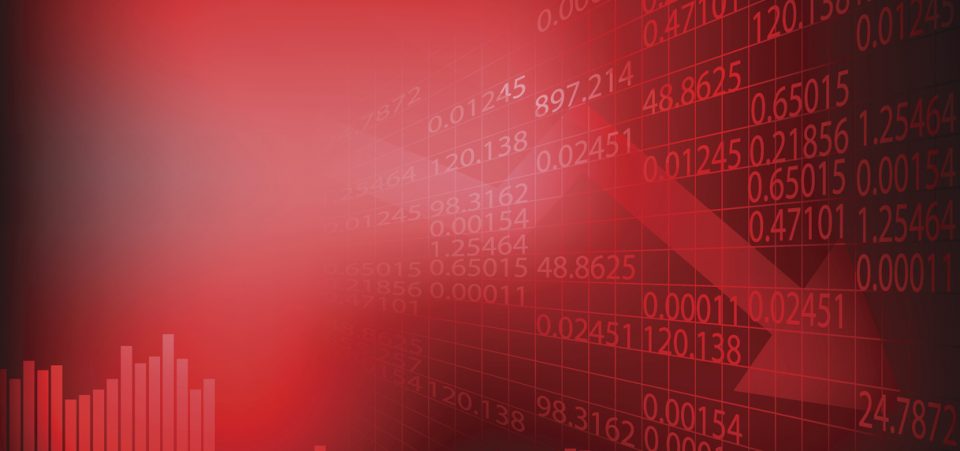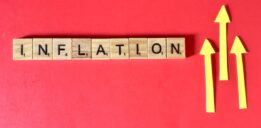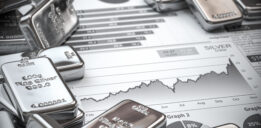Oil, Inflation, and Sky-High P/E Ratios Signal a Massive Stock Market Crash
The time of a major stock market crash approaches.
This is not hyperbole. The signs of a stock market crash are everywhere, if you care to pay attention.
Before even sitting down to enjoy breakfast in the morning, I read news headlines in English and many other languages. It’s easier than ever now with smartphones that sit conveniently on the night table and are regularly updated to the minute.
Over the past few weeks, you may have noticed a decidedly negative tone about the economic prospects for 2018 and 2019. Indeed, investors look for certain characteristics, veritable foundations that inspire confidence.
Or, if you prefer, they need the prospect of returns to be higher than the risk of loss.
Wall Street, still the beacon for the world’s investors, has not recovered since the end of January when it achieved its highest record. Stocks are sending a clear message: conditions did not warrant such confidence.
Even President Donald Trump’s crankiest critics salivated at the prospect of higher earnings thanks to his much-touted tax cuts: “the biggest cuts ever.”
Few considered the ever-so-vague probability that many companies would use their fiscal gains for stock buybacks.
The Market Has Lost Any Attachment to the Real Economy
The financial markets have an overarching problem.
Stocks—and their performance—appear to be completely detached from economic realities. They rise in an ephemeral space that has little to do with earnings and revenue prospects. Meanwhile, investors have ignored macroeconomic concerns.
Oil is one of these. Higher energy prices have always represented a risk to the real economy and to the stock market—unless you happen to be an oil exploration company.
Economics 101 clearly explains, and without the fancy terminology and fuzzier math of econometrics, that higher oil prices transformed the American economy in the 1970s.
High Oil Prices and Stagflation
Higher oil prices killed confidence in the future, triggering inflation, which quickly evolved into stagflation. Stagflation, for those who don’t remember, is the really bad kind of inflation. It happens when high unemployment combines with fast-rising prices.
In 2016, as oil prices dropped, everyone was concerned. Instead, they should have welcomed the lower energy costs.
Low energy costs transfer to all sectors. All consumers and taxpayers benefit. They bring down the price of food—because the ships and trucks that transport the food use less fuel.
They lower the cost of an average daily commute and keep real inflation in check. In an economy where wages have been stagnant for years, low energy prices mark the difference between showing up for work and showing up at the protest with a pitchfork.
Oil prices are moving higher, but few in the media discuss the effects. Yet, oil has put pressure on the rest of the economy and some investors have noticed. They fear the acceleration of inflation that expectations caused, deriving from sanctions against Russia, Iran, and Venezuela.
Oil has raised volatility in the market. Thus, earnings, even the impressive ones that some companies have been posting this month, have had little effect.
Rather, earnings have proven to be helpless against the other macroeconomic and geopolitical risks barreling against Wall Street. If solid earnings cannot boost the Dow Jones index, what could be next? A stock market crash, of course.
It’s a bit like an airplane about to enter a stall condition. Once you have more drag than lift, it does not matter how much power the pilot applies. A crash is inevitable.
The Markets Are Hitting Stall Velocity
A plane stuck at stall speed cannot climb. And when it drops below stall speed, it cannot stop descending.
Of course, stocks do not function according to aerodynamics and fluid dynamics. But the father of that field of physics, Daniel Bernoulli, was also the mathematician behind “Bernoulli’s Hypothesis.” This applies directly to investors and stock markets.
Bernoulli’s hypothesis is also known as the “Saint Petersburg paradox” or the principle of ‘marginal utility.” In basic terms and applied to stocks rather than dice in a roulette, Bernoulli explored the phenomenon of relative wealth. It states that investors should avoid the markets if the returns are marginal.
So, if you happen to have little or nothing to lose, staying in the market might be a good idea, given the possibility of a much higher return.
On the other hand, the already rich, the retired executive, or the small business owner enjoying the fruits of a life of hard work on a golf course or on vacation in the French Riviera should avoid unnecessary risks in the quest for a possible gain.
Of course, stocks provide more information than dice, but the general principle makes economic and, even more, philosophical or psychological sense. Keeping wealth and avoiding becoming too greedy is essential to success—success here meaning a good and happy life.
If you are an institutional money manager or a fund manager for retired teachers or dentists, you will avoid risking your clients’ savings on volatile stocks.
In the present circumstances, full of what Donald Rumsfeld blamed U.S. failures in Iraq on (the problem of “known unknowns” and “unknown unknowns”), the professionals and sensible folks will be migrating away from stocks to gold, cash, fine wine, or classic cars.
Beware Bernoulli and His Effect
Wall Street has fallen victim to the Saint Petersburg paradox. And a stock market crash will be the result. Daniel Bernoulli was a Swiss Russian. Perhaps the media and Hillary Clinton will soon have something real to blame Russia about.
Investors who choose to ignore Bernoulli, like gamblers who start losing their savings because they could not avoid betting away their first winnings in Las Vegas, are in for a bad surprise.
Stock valuations are, despite being lower than at the start of the year, extremely high. Price-to-earnings ratios, the equalizer of equity performance, remain too high.
As Bernoulli would observe, they have little to gain. Seasoned investors, who have made money on volatile stocks, will be pulling out. Only the gamblers with nothing to lose will stay.
Simply put, if the stock markets are too high, they have nowhere to go but down. A stock market crash seems not just inevitable, but necessary now. It’s the only way to restore balance to the very idea of a market.
The cyclically adjusted price-to-earnings (CAPE) ratio, which represents the average of the price-to-earnings (P/E) ratio of the entire stock market (with all due adjustments), recently registered 31.19. (Source: “Online Data Robert Shiller,” Yale University, last accessed April 24, 2018.)
At an average of 20, mildly aggressive investors would already consider the CAPE ratio to be too high. Meanwhile, it has hovered above 30 for almost a year. Oh, and since Wall Street started keeping records, the average has been 16.85.
According to the law of averages, let alone Bernoulli, extremes always tend to fall down to a “compromise” figure. This happened just before the two most recent major stock market crashes: the tech bubble of 2000 and the subprime mortgage bubble of 2008.
In other words, Isaac Newton, who explained gravity, will soon make his entrance as a stock market crash ensues.
The fall after the party has already begun. Fourth-quarter 2017 earnings have been released. And they’re great.
However, investors are saturated with bullish sentiment. The valuations simply cannot go any higher. Investors are considering, at best, the favorable earnings to be a confirmation of previous rallies.
There’s a reluctance, if not a downright fear, to buy more. The financial stocks have failed to take off, despite their rising earnings. And the tech stocks, which have inflated a huge bubble over the past few years, appear ready to burst.
The market will now be favoring sellers. Soon enough, the few buyers left pondering whether the bear market has arrived will get their answer one trade too late.






